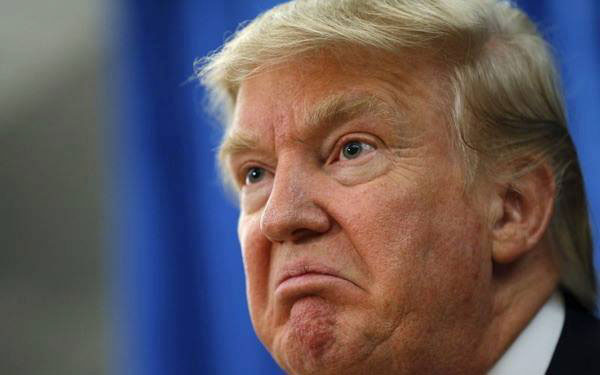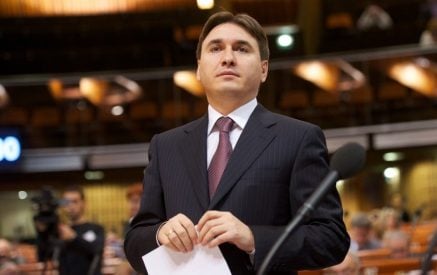Despite all predictions, Donald Trump was elected the 45th US president. The first reactions are more shocking, especially in European capitals while in Moscow and in some former post-Soviet countries, there was even a triumph.
There are numerous studies why the US voter preferred Trump, especially what do they expect from him, as well as what the US voter expected when voted in favor of Hillary Clinton. This is important for people living outside the United States to the extent that the foreign policy is the continuation and the derivative if the domestic policy, and it has been said for the state such as the US that all politics are domestic. However, for us – the non-Americans – it is important to know about what changes can be with the leader of the international arena which will significantly determine the process of the international relations at least in the course of the next four years.
Certainly, foreign policy is one of the UC constants, it is not conditioned only by the president’s personality. Extremely important functions are attributed to the president, he is the head of the process of formation and implementation of the policy. But in a country where there are multi-layered and diverse systems of restraining and balances, developed institutions and bureaucracy, developed civil society, free and influential press, the president cannot direct the foreign policy in any direction driven by his preferences, sympathies or antipathies. It is neither Russia nor Turkey where the president one day decides who its next “brother” is that later may become an “enemy” so that six months later would again go back to the status of the “brother” and always receive in response the admiration of the ruling system and pro-government press with “wise” policy where no questions are asked, and the ones who ask questions are declared anti-state elements or are simply imprisoned.
In addition, the Constitution and independent judicial system operate in the United States that oversees that any move of the authorities complies with the letter and spirit of the legislation. And finally, when a question is asked in the US, they make you answer to these even the most uncomfortable questions and upon receiving the answers new questions are asked. The New-York based Russian writer Alexander Genis has given the precise description of this expected process, “The Republicans will commence a huge operation entitled “To educate Donald Trump”. It is known that the Republicans have received the majority in both the Senate and the House of Representatives. However, this cannot ensure a quiet life to the Republican candidate Donald Trump. Apparently, he will have the biggest problems with his co-party lawmakers who will perform a key role in holding the president with his eccentric character and far from foreign policy from making mistakes.
Read also
First of all, the matter refers to the transatlantic relations: the US and Europe. The shocking sentiment existing in European capitals are not groundless. Jean-Claude Juncker, Federica Mogherini, Jens Stoltenberg, Angela Merkel, and the European press are deeply concerned about the future of the US-Europe strategic relations, especially after the “Brexit”. In addition, Europe also feels a domestic threat as the chances of local extreme right and extreme left demagogues are growing in the upcoming elections in key countries, many of which imitating the candidate Trump’s rhetoric can achieve success and undermine the united Europe.
While Europe, unlike the US, does not have a 250-year historic experience of phased and sequential establishment of institutions. Except for Britain, the Netherlands and the Scandinavian countries, the history of European democratic institutions is full of shocks: series of French revolutions and coups, Italian and German fascism, occupation and devastation of two world wars, collapse of empires, dictatorships in Spain and Portugal, the de-Nazification in the case of American military presence and so on. Central Europe which was called Eastern before the collapse of the USSR has come out of the Soviet “iron curtain” for already two decades. The Eastern and South-Eastern Europe, in other words, the former Soviet countries, including Armenia, are not seriously stalled by feeling Moscow’s “brotherly” breath in the back, where the euphoria dominates now, where the State Duma speaker Volodin declares about the “unprecedented unity” of the views of the US and Russian presidents. Consequently, being such fragile, the Europe, from Portugal to Armenia and from Norway to Greece, cannot afford such a luxury to itself during the elections as the Americans. That is why Europe is also deeply concerned.
NATO Secretary General, former prime minister of Norway, Jens Stoltenberg, wrote in the article in the British “Observer” expressing his concern regarding the pre-election thesis of candidate Trump, noting, “Going it alone is not an option, either for Europe or for the United States.” It is well known that the United States has not intervened in the European politics until 1917 when the American army intervened in the First World War and predicted the victory of the Entente. On the other hand, it is known how President Wilson’s all initiatives ended: the United States has fenced in again, and self-isolation deepened in 1929 after the Great Depression. While the Bolshevik Russia and Nazi Germany sent a challenge to liberal democracy, and in addition to Britain no one in Europe rose against it which Britain was doing since 1939. And the United States had to “return” again. Therewith, he predicted the defeat of Nazism and the suspension of the Bolshevism triumph at least in the western part of Europe.
After that, peace prevails in 70-years united Europe, its security is maintained by the US-Europe strategic, vital importance alliance. Again, the US-based Russian historian Yuri Felshtinsky mentioned ahead of the elections that this is a referendum in its way, what will happen with Europe and the Muslim East, emphasizing that the peace in 70-year old Europe is disturbed by Russia’s aggression against Ukraine and illegal annexation of the Crimea…
And today, as a US president who was elected by the people of America, Donald Trump is given to resolve these issues that remain unanswered for now.
A question may arise: what is our interest in it? Such a question in the case of “we and our mountains” paradigm may seem quite fair. But in the globalized and more globalizing world, no unmounted mountains are left, and it is a fact. And if you are left unmounted, it is not the mountains but the people for whom it is easy to live by thinking in this way. It is clear that this is a self-deception. It is also clear that the relations of the US with Armenia and other post-Soviet countries will just be derived from the relations that will be built during Trump’s tenure with the US and on the other hand, Europe, Russia, Turkey and Iran. Currently, Armenia’s and the US interests objectively and almost totally match in the region, and its formulations were given during the 8 years’ of Obama’s administration. What will be the continuation of the process of development of relations, it is not yet clear?
Ruben MEHRABYAN
P.S. I am ready to make bet: at the latest in 2020, the United States will have the 46th president.























































